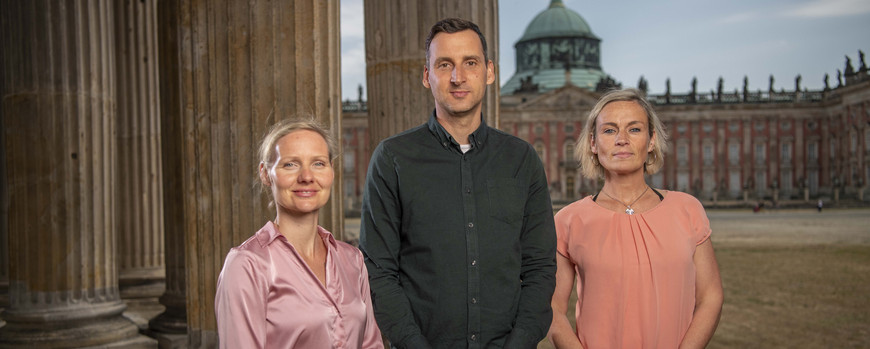Das Inklusionsteam
Das Inklusionsteam der Universität Potsdam arbeitet aktiv daran, die Universität Potsdam zu einem Ort zu machen, an dem alle Menschen gleichberechtigt teilhaben können. Das Inklusionsteam besteht dabei im Kern aus den Inklusionsbeauftragten und der Schwerbehindertenvertretung. Hinzu kommen je nach Themenbereich weitere Personen, wie z. B. Vertreter:innen des Personalrats, Kolleg:innen aus dem Personaldezernat oder der/die Betriebsarzt/ärztin.
Die Inklusionsbeauftragten
Die Schwerbehindertenvertretung
Die Schwerbehindertenvertretung vertritt die Interessen von Arbeitnehmenden mit Behinderung und chronischen sowie psychischen Erkrankungen. Sie steht ihnen beratend und helfend zur Seite und nimmt auch an Einstellungsgesprächen teil. Die Schwerbehindertenvertretung wird durch die Beschäftigten mit Schwerbehinderung gewählt. Sie nimmt Anregungen und Beschwerden der Beschäftigten entgegen und kann dabei auch in Verhandlungen mit der Arbeitgeberseite gehen.




